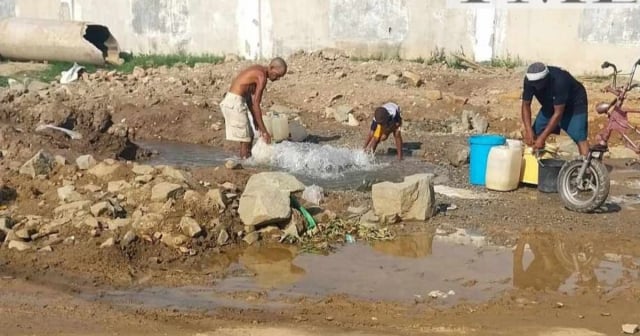The number of people infected with the Oropouche fever virus (OROV) in Santiago de Cuba is such that the capacity in the hospital wards has been exceeded.
A video shared on Twitter by the Cuban Observatory of Human Rights shows the situation that the Saturnino Lora Hospital is going through, where they have had to place beds in the hallways due to the increase in patients.
To top it all off, the health service is affected by the lack of supplies, instruments, stretchers, sheets, and more," the tweet points out.
Last week, residents in Santiago de Cuba reported that the country does not have the conditions to combat the Oropouche virus due to the accumulation of landfills, leaks of black water, the lack of resources for fumigation, and power outages.
Doctor Roberto Serrano, from the municipality of Songo la Maya, the epicenter of the outbreak on the island, reported to Martí Noticias that there are many cases with high fever and strong headaches, in the sacro-lumbar area and in the muscle part of the lower limbs, along with vomiting, diarrhea, and loss of appetite.
"It is a quite serious picture, which significantly impairs people's health," he said.
There are people who have fallen on the street because it is quite strong. I am telling you this because I went through it, I am going through it, because I have had the symptoms for almost a week, today I was able to go to work, thank God," he added.
Serrano also pointed out that the population does not have mosquito nets and that it is very difficult to protect themselves from the mosquito that transmits the virus, the Culex quinquefasciatus, a type of tiny midge that is barely visible when it bites and is abundant in the area.
"The neighborhoods, when one person falls, it's the entire neighborhood. Here there is absolutely nothing, not in the clinics, nor in the pharmacies either, there isn't even dipyrone to bring down the fever," he emphasized.
The Ministry of Public Health (MINSAP) sent a letter to the directors and heads of postgraduate departments on the Island, alerting them that the current epidemiological situation could become "more complex" due to the increase in episodes of "non-specific" fever in Santiago de Cuba.
Miguel Ángel Ruano, a Cuban doctor residing in Colombia and president of the Free Cuban Medical Guild, had access to the letter in which a MINSAP official admits that "there are no specific vaccines or antiviral medications available to treat OROV infection." Therefore, patients are prescribed a palliative treatment "focused on relieving pain, rehydrating the patient, and controlling any vomiting that may occur."
In an interview granted to CiberCuba, Ruano emphasized that "the health system is not prepared to face" this epidemic and the lack of resources could lead to many of the infections developing into meningitis or encephalitis, which are much more serious.
What do you think?
COMMENTFiled under:
